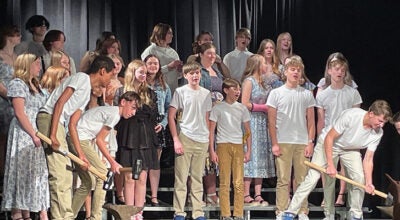Tide turns on Minnesota legislative session
Published 7:01 am Monday, March 1, 2021

- Glen Stubbe/Star Tribune via AP file
|
Getting your Trinity Audio player ready...
|
By Brian Bakst, Minnesota Public Radio News
The nature of Minnesota’s legislative session has dramatically changed.
No longer is there a projected deficit to fix. A modest budget surplus is now in the cards, and a big chunk of money could soon be on its way from the federal government.
Differences over how to craft the next budget remain, but the prospect of a protracted stalemate is diminished.
Then versus now
Until Friday, Minnesota lawmakers were operating under the assumption a $1.3 billion shortfall would have to be addressed as they built a new, two-year budget.
Then a fresh economic forecast from the Department of Minnesota Management and Budget projected a $1.6 billion surplus would accumulate instead by July 2023.
The money isn’t in hand. Actions by the Legislature will certainly alter the calculation. So will shifts in the economy — for better or worse.
But this is the benchmark lawmakers will use when they adopt a budget that will top $50 billion.
Federal infusion
The new projected surplus assumes that the U.S. Congress will approve a new stimulus law.
The expectation of stronger tax revenues are predicated on the idea that a plan of at least $1.5 trillion will be signed this month by President Joe Biden. The inclusion of $1,400 relief checks for many families will presumably increase consumer spending. That will translate into stronger state sales tax collections and probably more hiring, which means more income taxes.
The economy has already been rebounding as coronavirus case counts come down and vaccinations increase. A resurgence in the virus could dampen the outlook.
But the state forecast doesn’t add in what would come directly to state and local governments and school districts under the proposal that passed the U.S. House last week.
With the caveat that this could still change, there’s approximately $4.7 billion in store for Minnesota.
Not all of it would be headed for the state treasury. That figure is just shy of $2.6 billion.
Cities and counties are in for their own pot of money. So are school districts.
What’s not yet clear is whether there are rigid requirements on how the money gets spent or if there is flexibility.
Session dynamics shift
The surplus estimate isn’t big enough to support a range of new programs or a hefty slate of tax cuts. And it doesn’t calculate inflationary spending increases for many existing programs. If it had, about $1 billion would come off the top.
But this will put pressure on Gov. Tim Walz and DFLers to move away from their call for tax increases, and is sure to lead to some reevaluation among Republicans, too.
Walz wasn’t ready to let go of his tax plan just yet, but said he’ll expect some good-faith concessions from the GOP on across-the-board spending reductions for state agencies.
Imminent action?
The surplus will improve the prospects that federal business loans conferred during the pandemic will be shielded to some degree from state taxes.
Virtually every Republican, many DFLers and Walz all say they don’t want to penalize businesses that took the Payroll Protection Program loans to retain employees during COVID-19 restrictions. Those that did will see their loans forgiven and spared from federal taxes; the Legislature would have to change its law to keep state taxes at bay.
The question has always been if every business would qualify for a write-off — that would translate into a $440 million revenue reduction for the state.
Some lawmakers want to be more targeted toward small businesses that were hardest hit during the pandemic closures.
The Senate will vote on a tax plan this week, according to Senate Majority Leader Paul Gazelka.
But another issue is whether the state gives a break to people who received enhanced unemployment payments but didn’t hold back taxes.
It’s easy to see the two get intertwined and the makings of a compromise though.
Walz said he hopes lawmakers act fast on summer school grants for school districts, perhaps in expectation of federal money for that. He said they need time to plan their courses to help students catch up from an extended hiatus from the classroom.





